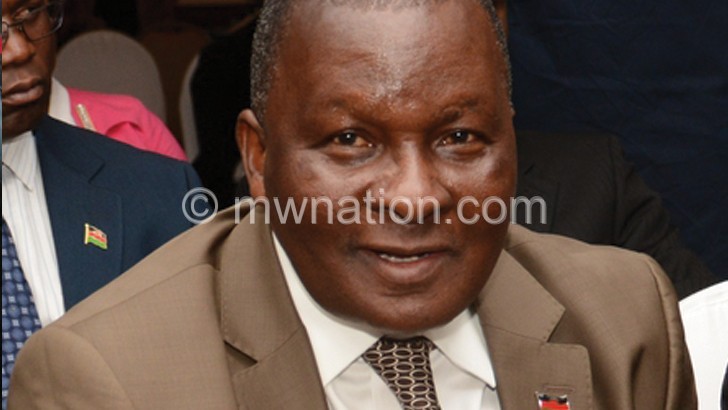Dausi stirs trouble on albino killings
The Association of People with Albinism in Malawi (Apam) has withdrawn from the Presidential Task force on Persons with Albinism following what it says are careless remarks by Minister of Homeland Security Nicholas Dausi.
During a news conference in Lilongwe on Tuesday, Dausi is on record to have said that the attacks on persons with albinism were yet to get to levels where they should hold vigils at State House or seek asylum in other countries.

He said: “When they say they want to seek asylum elsewhere, do they want to insult government? Seriously? If they [Apam] are listening to us, will they insult government? These are things coming from homes where parents are selling their biological kids and they say we are facing challenges here?
“Even if there could be a country with tight security, but if a mother is selling her own child, a young man is selling his uncle right in the homes where there is supposed to be tight security. Now they say they want to march to State House, what will they be marching for?”
Apam has not taken the minister’s sentiments kindly, arguing that Dausi demonstrated a lack of seriousness in fulfilling duties and responsibility to protect persons with albinism.
But task force chairperson Hetherwick Ntaba said in a separate interview they are discussing with Apam to reconsider its position.
In an interview yesterday, Dausi said his remarks were not meant to belittle Apam members. He insisted that the issue was being politicised.
The minister was unapologetic, saying there was more to the Apam decision than meets the eye. He claimed government was aware of what was happening in the background.
Said Dausi: “You have seen [MCP president Lazarus] Chakwera saying he will join the vigil and they themselves as Apam met leader of UTM [who is also the country’s Vice-President Saulos Chilima]. Is that not political interference?”
In a letter to the task force dated February 20 2019, Apam president Overstone Kondowe said Malawi needs to accept that security and investigative measures have failed to bring tangible solutions to this national crisis.
He also said President Peter Mutharika should seek international support to conduct investigations, including specialist support for forensic testing and combating human trafficking.
In December 2017, the task force lobbied for the application of a death sentence to people convicted of murdering persons with albinism, saying this will deter other would-be offenders.
Apam plans to hold a three-day vigil from March 6 to 8 2019 at Kamuzu Palace. The vigil is scheduled to be preceded by a solidarity march from Lilongwe Community Centre ground through Parliament Building to Kamuzu Palace where they will present a petition to the President.
Lilongwe City Council has since acknowledged receipt of the Apam notification, but acting chief executive officer Genscher M’bwabwa said they were yet to meet all stakeholders to discuss the route and other relevant details.
Meanwhile, Eugenio Njoloma, a senior lecturer in the Department of Governance, Peace and Security Studies at Mzuzu University (Mzuni), said the absence of knowledge of the real perpetrators, will continue to haunt Malawi.
He suggested that Malawi should invest her resources, time, and energies in mindset change through deep and extensive civic education, promotion of citizen engagement in socioeconomic development initiatives, among others.
Said Njoloma: “I believe that if communities can be helped to promote socio-economic cohesion, people living with albinism can live freely.”
On Monday, European Union Ambassador Sandra Paesen called for serious criminal investigations and coordination among countries to fight abductions and killings of people with albinism.
Malawi also has a 2018-2022 National Action Plan which focuses on promoting security and protection of persons with albinism, ensuring responsive and inclusive legal and policy frameworks on albinism issues, and ensuring equal access to social services such as health and education.
Since November 2014, the number of reported crimes against people with albinism in Malawi has risen to 152 cases, including 25 murders and more than 10 people missing, according to Apami.





